Table of Contents
An imperative sentence is a type of sentence used to give commands, instructions, requests, or advice. It usually begins with a verb and directs someone to take action. These sentences can be firm, polite, or even friendly, depending on the tone.
They often end with a period but may also use an exclamation mark to show urgency. Imperative sentences focus on getting something done rather than stating facts.
What are imperative sentences?

Imperative sentences are used to give commands, requests, or instructions. These sentences usually start with a verb and directly address the listener.
Examples:
Close the door.
(A command instructing someone to shut the door.)
Please pass the salt.
(A polite request asking someone to hand over the salt.)
Don’t run in the hallway.
(A prohibition telling someone not to run in a specific place.)
Uses of Imperative Sentences
1. Commands
Commands are direct orders that require immediate action. They are often short and to the point.
- Stop talking. (A direct order to maintain silence.)
- Stand up now! (An urgent instruction to take action.)
2. Requests
Requests are softer than commands and are often polite. They are used to ask for help or permission. Adding words like please or kindly makes the tone more respectful.
- Please pass me the book. (A polite way to ask for the book.)
- Could you open the door, please? (A respectful way to request help.)
3. Advice or Suggestions
These sentences offer guidance or recommendations to the listener.
- Drink plenty of water to stay hydrated. (Advice for health.)
- Try to focus on your studies. (A suggestion for improvement.)
4. Instructions
Instructions are used to explain steps or procedures clearly. They are common in recipes, manuals, or directions.
- Add two cups of sugar and stir well. (Cooking instructions.)
- Turn right at the next traffic light. (Directions for navigation.)
5. Warnings
Warnings alert the listener to potential danger or consequences. They are often urgent and serious in tone.
- Don’t touch the hot stove! (A safety warning.)
- Beware of the dog! (A caution to avoid harm.)
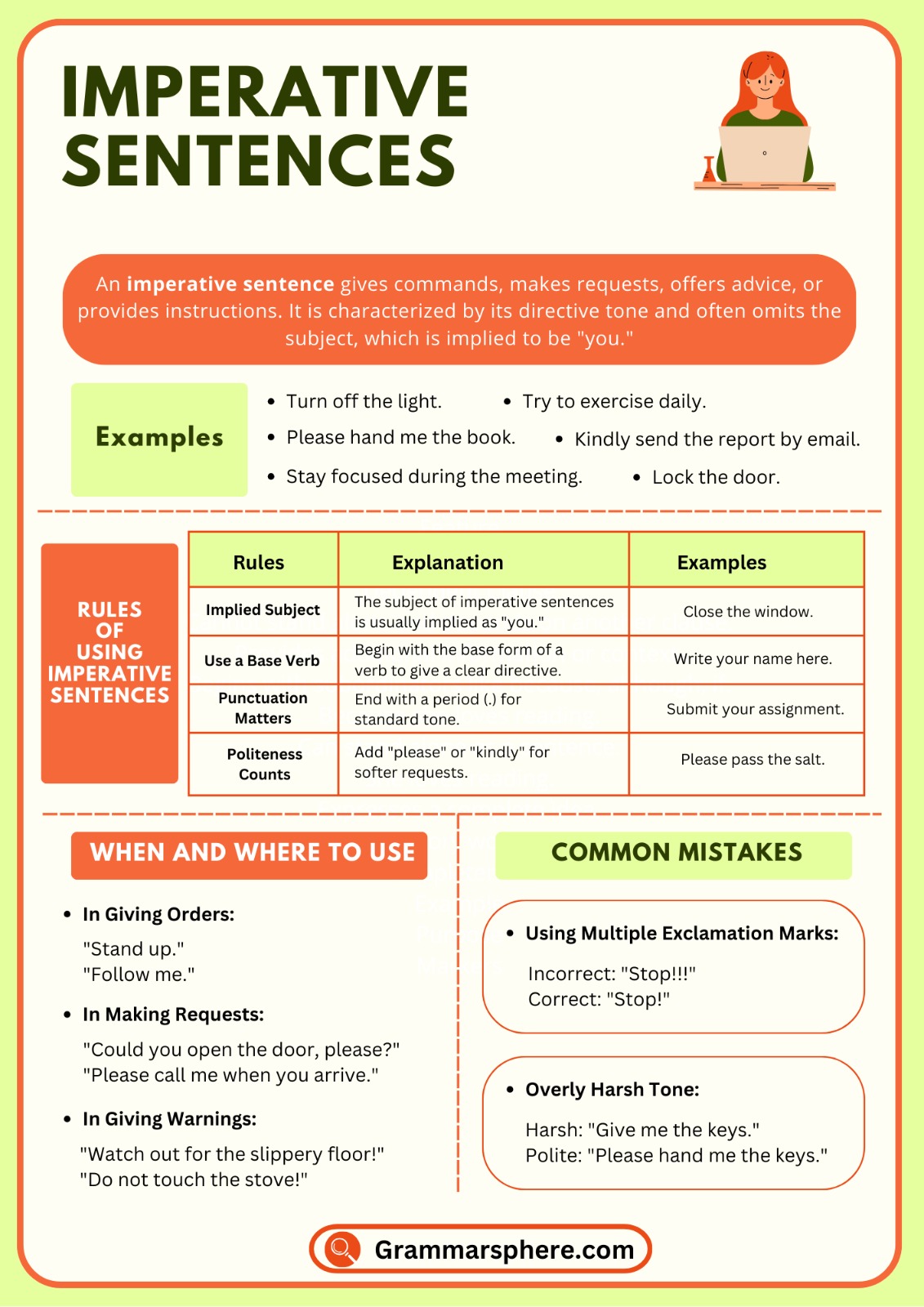
Other Types of Sentences
Apart from imperative sentences, there are three main types of sentences in English: declarative, interrogative, and exclamatory. Each serves a unique purpose in communication.
1. Declarative Sentences
Declarative sentences are used to state facts, opinions, or information. These are the most common sentence type and always end with a period (.).
Purpose: To share information or express ideas.
- The sun rises in the east. (Fact)
- I love reading books on weekends. (Opinion)
2. Interrogative Sentences
Interrogative sentences are used to ask questions. They usually begin with a question word like who, what, when, where, why, how, or an auxiliary verb and end with a question mark (?).
Purpose: To request information or clarification.
- What time does the meeting start? (Asking for specific information)
- Are you coming to the party? (Yes/No question)
3. Exclamatory Sentences
Exclamatory sentences express strong emotions such as excitement, surprise, or anger. They always end with an exclamation mark (!).
Purpose: To convey strong feelings.
- What a beautiful day it is! (Expressing excitement)
- I can’t believe we won the match! (Expressing surprise)
Why Imperative Sentences Are Important
Imperative sentences play a crucial role in communication because they help us express commands, give instructions, make requests, or offer advice.
These sentences are essential in our daily interactions to convey actions clearly and directly. They simplify communication and ensure the listener understands exactly what is expected.
Example Sentences with Imperative Sentences
- Sit quietly in the classroom.
- Open the door to let fresh air in.
- Please help me with my homework.
- Don’t touch that fragile vase.
- Wash your hands before eating.
- Turn off the lights when you leave the room.
- Read the instructions carefully before starting.
- Do not run in the hallway.
- Listen to the announcement carefully.
- Take your umbrella; it might rain today.
Rules of Imperative Sentences
imperative sentences follow specific grammatical rules to convey commands, requests, instructions, or advice. Understanding these rules helps ensure clear communication.
1. Begin with a Base Verb
Imperative sentences start directly with the base form of the verb (the infinitive without “to”). The subject is implied as “you”.
- Close the door. (Command)
- Read the book carefully. (Instruction)
2. Subject is Always Implied
The subject “you” is not mentioned but is understood to be the person being addressed.
- (You) Clean your room.(You)
- Follow the instructions given.
3. Can Include “Please” for Politeness
Adding words like “please” or “kindly” makes the tone polite, suitable for requests.
- Please help me with the project.
- Kindly take your seat.
4. Can End with a Period or Exclamation Mark
The sentence typically ends with a period for a neutral tone or an exclamation mark for emphasis.
- Bring me the keys. (Neutral)
- Watch out for the car! (Emphatic)
Imperative Sentences FAQs
1. What is an imperative sentence?
An imperative sentence gives a command, request, instruction, or advice. It usually starts with a verb and ends with a period or exclamation mark.
2. What are the types of imperative sentences?
The main types are commands, requests, instructions, advice, and warnings.
3. What punctuation is used for imperative sentences?
They typically end with a period (.) or an exclamation mark (!).
What are examples of an imperative sentence?
Close the door.
Please pass me the salt.
Sit down and relax.
Take your time.
You May Also Like

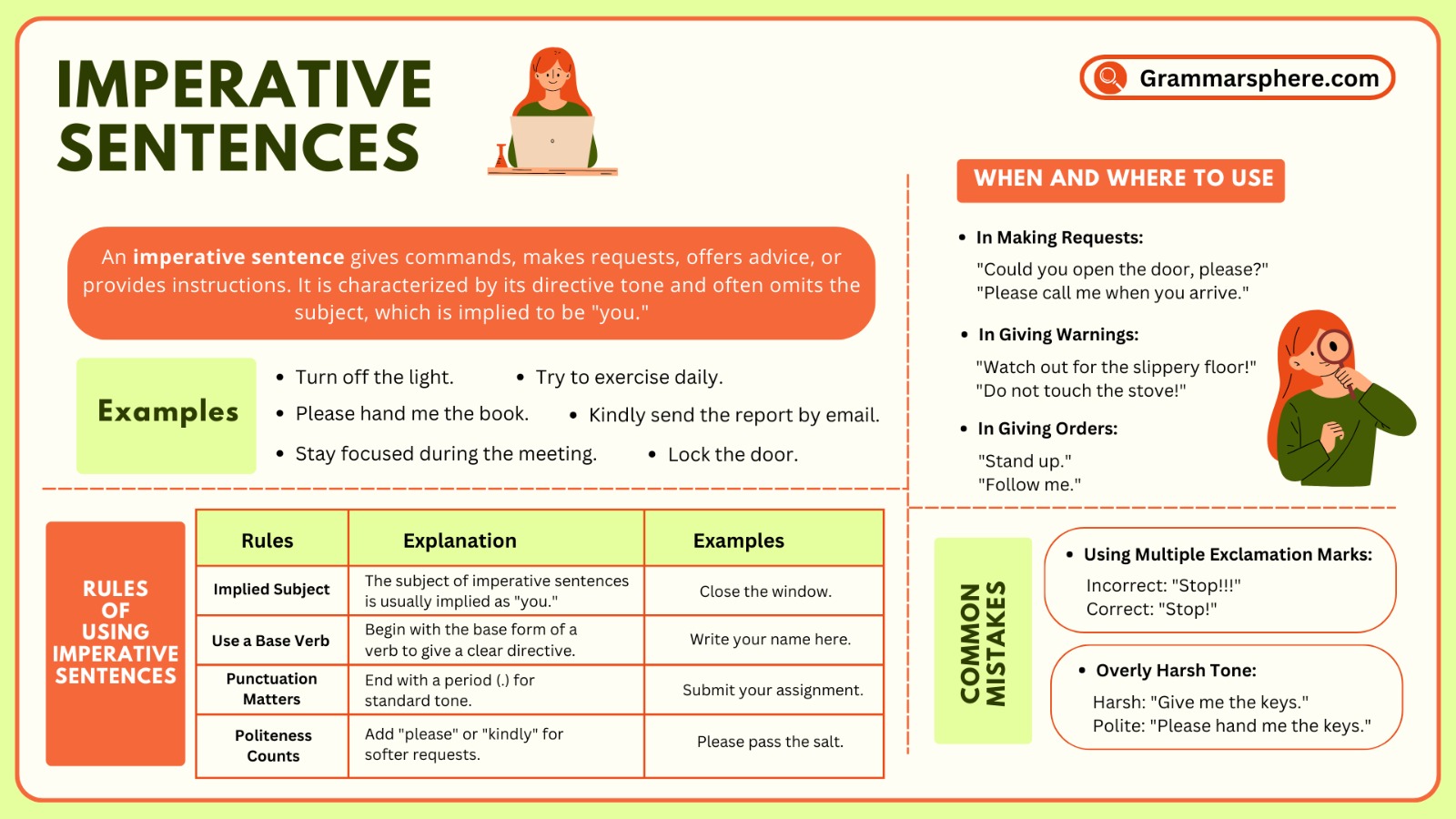
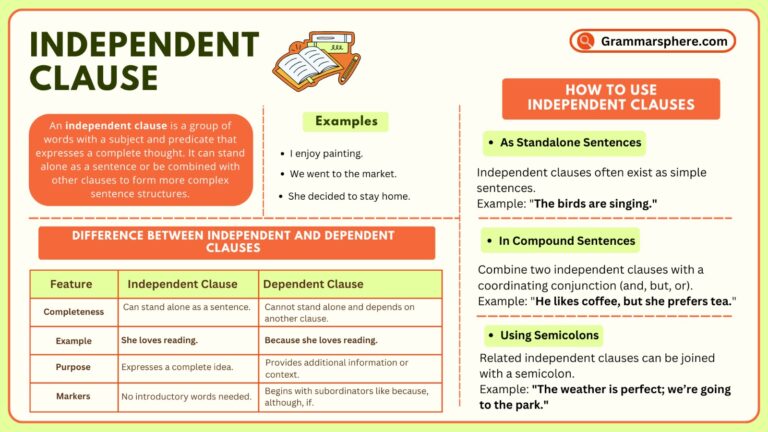
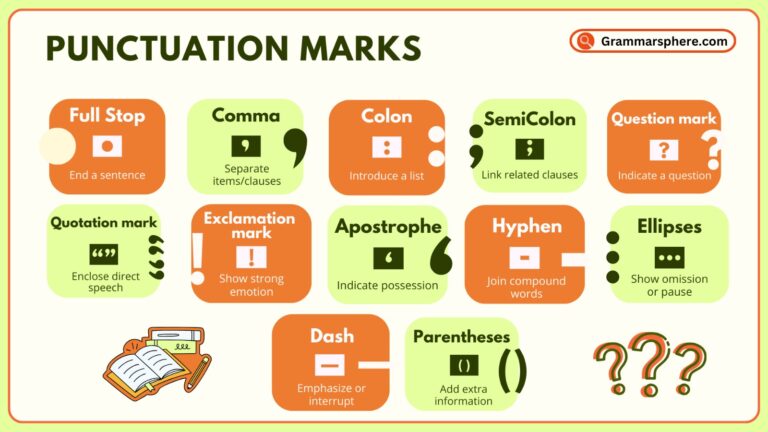
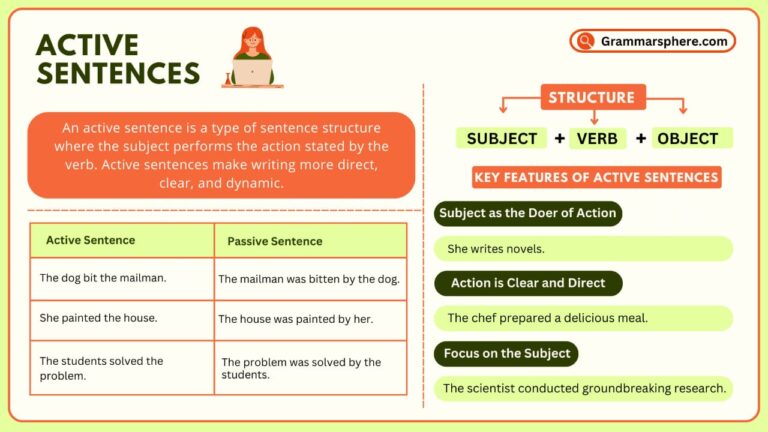



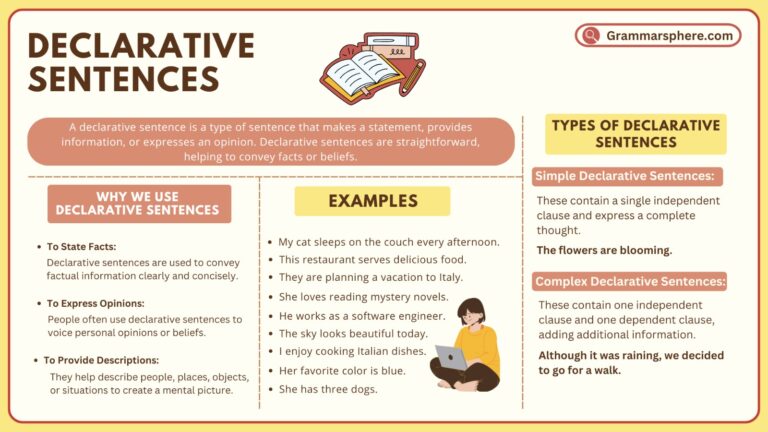

Leave a Comment